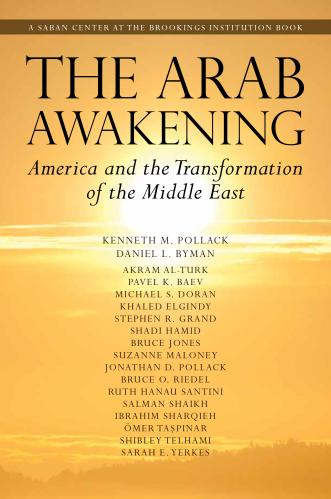The United States lacks good options when it comes to Syria. Should it back the Assad regime against terrorists in the country? The costs and risks are high, writes Dan Byman—too high, in fact, for this policy to be pursued. This piece originally appeared on Lawfare.
President-elect Donald Trump harshly criticized President Obama’s record on Syria: Obama, he claimed, allowed the Middle East to fall into chaos and let the Islamic State and other terrorist groups flourish. After his surprise victory in the presidential election, Trump suggested a dramatic reversal in U.S. policy: allying with the Syrian regime of Bashar Assad against the Islamic State. “Syria is fighting ISIS; and you have to get rid of ISIS,” he noted. So instead of working with the Syrian opposition and traditional allies like Saudi Arabia and Turkey to overthrow Assad and fight the Islamic State, the United States should switch sides and back the Assad regime, working with Russia (though probably not Iran, Damascus’ most important ally), against the terrorists.
It is tempting to pooh-pooh this approach as part of a broader dismissal of Trump’s foreign policy ideas, which are often naïve and contradictory. But, of course, Trump will soon be President of the United States whether you like it or not. Moreover, it’s not just Trump saying this. Some experts, like seasoned diplomat Ryan Crocker, have called for working with Assad, pointing out “as bad as he is, there is something worse.” And, as I’ve argued elsewhere, the United States lacks good options when it comes to Syria. Efforts to train the Syrian opposition, negotiate a deal, and otherwise resolve the conflict have all failed.
In theory, the Assad regime does offer a true alternative to both the Islamic State and chaos. Bashar Assad and his father before him imposed a brutal order on the country in the past. Assad the elder killed thousands during a civil war from 1978-1982, leveling parts of the city of Hama, a key opposition hotbed, as a lesson to those he defied him, particular Islamists tied to Syria’s Muslim Brotherhood. Both he and his son ruled as dictators, where torture and other human rights abuses were common. But say what you will, the jihadist problem in Syria was largely contained—though, given the poor quality of governance and services in Syria, the trains never really ran on time.
Although hostile to the United States, Assad is pragmatic—for example, in 2013 he agreed to rid himself of chemical weapons in a successful effort to avoid U.S. air strikes (though his actual compliance is incomplete, and his regime reportedly used chemical weapons in the battle for Aleppo earlier this fall). The United States could push deals regarding Israel in particular as the price of cooperation, demanding a peace treaty with Israel and other concessions. And although President-elect Trump probably wouldn’t go down this road given his vociferous criticism of Tehran, cooperation with Assad could bolster a U.S. rapprochement with Tehran, Assad’s closest ally. More appealing for a Trump administration, working with Assad in Syria would also extend the bromance between Trump and Putin. Indeed, discussions on Syria policy between Moscow and Trump have already begun.
The costs and risks are high—too high, in fact, for this policy to be pursued.
Yet, the costs and risks are high—too high, in fact, for this policy to be pursued. Diplomatically, U.S. allies like Turkey and Saudi Arabia would strongly oppose this policy and would probably work to undermine it. The Saudis (correctly) see Damascus as a close ally of Iran, and leaders in both countries share the outrage of ordinary Sunnis in general at Assad’s sectarian brutality: a U.S. decision to ally with Damascus would be seen as a stab in the back. Both these allies are vital in the broader fight against the Islamic State and terrorism in general. Saudi Arabia has proven a major source of terrorist recruits and financing, while the Syria-Turkey border was a major crossing point for Islamic State recruits. Both countries still have much to do, but that’s the point—if the Trump administration alienates them, the Islamic State problem will get much worse. With the United States on the other side in Syria, Turkey and Saudi Arabia might send anti-aircraft weapons to Syrian rebels and otherwise escalate the fighting in ways dangerous for international terrorism—actions that, so far, the United States has helped reduce. These are also important countries as the United States seeks to counter Iran, and Saudi Arabia’s massive energy reserves are vital to the global economy. So our interests go well beyond counterterrorism.
At a popular level, a deal with Assad would increase the Sunni Arab world’s existing hostility toward the United States. Russia’s military efforts have focused primarily on the U.S.-supported Free Syrian Army and similar factions, not on the Islamic State. Russia and Iran are loathed in the Arab world because of their embrace of Assad, and a U.S. alliance with Syria and these powers would “prove” to already-suspicious Sunnis that the United States seeks to subvert their traditional dominance of the Arab world and encourage Iranian influence to spread. Such a U.S. effort would bolster claims by the Islamic State and al-Qaida’s former affiliate Jabhat Fateh al-Shem that terrorism is justified because the United States is at war with Sunni Muslims.
The Islamic State might also focus more of its attention on the United States. The group, of course, already considers America an enemy, but most of its energy has gone into the local struggle in Iraq and Syria. It has orchestrated international terrorist attacks in Europe and Asia, but in the United States—so far at least—it has only proven able to inspire less-effective “lone wolf” attacks.
Additionally, although U.S. air power and other support would help Assad’s forces advance, the regime would be unlikely to pacify all of the country, at least in the near-term, given the size of the opposition. The United States is already bombing and otherwise fighting the Islamic State, efforts that have set the group back though hardly defeated it completely. Assad’s military forces are overstretched, and even with support from the Lebanese Hezbollah and Shiite fighters from Iraq and Afghanistan the Syrian government remains weak. So the United States would remain embroiled in a long war in Syria.
Trump also seems to forget the “enemy” part of “the enemy of my enemy is my friend.” Assad facilitated the flow of fighters to Iraq to kill American soldiers there after the 2003 U.S. invasion. He has supported terrorism against Israel and otherwise opposed U.S. interests. And an Assad victory would be widely, and correctly, seen as a triumph for its biggest friend—the clerical regime in Iran.
Most important, morality matters. It is one thing to ally with Stalin against Hitler when engaged in a total war; it is another to make such a devil’s bargain in a lesser conflict when the U.S. enjoys overwhelming power. Trump is proposing to embrace a mass murderer. Assad’s regime is the primary culprit in a war that has killed roughly half a million Syrians and driven millions more into long-term exile. He promises Syria more tyranny should he triumph: there is no credible vision of reconciliation and peace. Even if the United States is willing to help make a desert and call it peace, there is no reason to trust that Assad wouldn’t take brutal revenge on any former foes who return home. An Assad victory would be likely to drive even far more refugees into exile.
So if not Assad, what should we do? The United States can continue the incremental but steady efforts to work with local factions in Iraq and Syria to shrink the Islamic State’s haven and put pressure on the group. It can continue the global intelligence effort that targets the Islamic State’s tendrils outside Iraq and Syria. And Washington can continue to push allies to join us in opposing Assad and backing the Syrian opposition. None of this is ideal, and even in the best of circumstances the Islamic State is likely to survive in some form, but all of it is better than a deal with the Syrian devil.
The Brookings Institution is committed to quality, independence, and impact.
We are supported by a diverse array of funders. In line with our values and policies, each Brookings publication represents the sole views of its author(s).











Commentary
Should we work with the devil we know against the Islamic State?
November 21, 2016